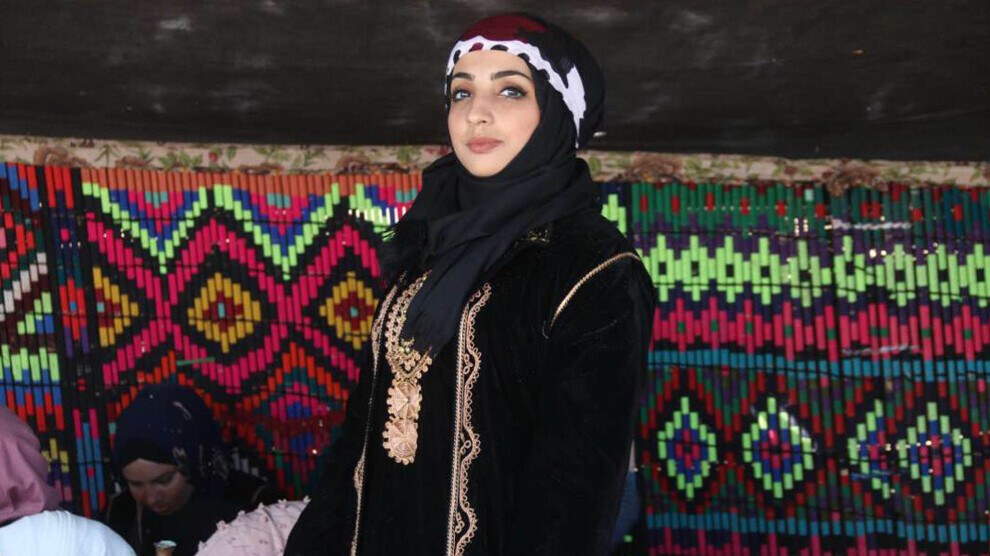Women of Deir ez-Zor preserve their traditional clothes
Arab women living in the eastern countryside of Deir ez-Zor, northeast Syria, keep wearing their traditional clothes to preserve their tradition.

EMILY SALLOUM
Deir ez-Zor – Women living in the countryside of Deir ez-Zor, northeast Syria, play an important role in preserving their culture and tradition.
In NE Syria, each region has its own customs, traditions, and clothing. The traditional clothes of the people from different religions and nations are defined by being comfortable, practical, and modest, driven by the extremely hot weather in summer and the burden on women's shoulders.
The traditional clothes for single women in Deir ez-Zor consist of a colorful robe with a cloak and a band and a Habriah. These traditional clothes are still preserved by particularly elderly women. Young women and girls also wear these traditional clothes to revive the tradition.
The Habriah is a silk scarf that covers the head so that only the face is visible, the strands fall under it, and the sash, which is the rural woman's crown, is placed on it. They can learn to wrap it around their heads by doing so.
"Habriah can be in different sizes and colors, including black and crimson in addition to white,” said Abeer Muhammad, a woman from the countryside of Deir Al-Zor, referring to the wrapping sash that goes back to the Abbasid era in Deir ez-Zor.
“Al- Diriyah headband, Al-Iraqiya, Al-Hasakawiyeh, and Al-Raqqawi are some of the names given to Habriah according to the wrapping sash. Women put a headband on their head, fold it, and wrap it around their head. The front of the bandage covers the top of the head. The forehead is curled together on both sides; this process adds more beauty to the face. Habriah is our heritage left us by our mothers and grandmothers,” she said.
Amina Awad, a member of the Zenobia Women's Gathering, said, "The traditional clothes of Arab women in Deir Al-Zor consists of several pieces, including a dress, an abaya and habriah. Women wear these traditional clothes on special days. Sometimes, women embroider their clothes with golden threads. But most women prefer to wear black clothes.”
"While the wearing of traditional clothes has reduced, women still wear them on special days since they show the identity of women living in the Euphrates Region,” she added.
Sobhia al-Muhammad, who lives in the Kasra area and is in her seventies, said that wearing the Habriah and tradition dresses is one of the most essential features of rural women in Deir ez-Zor.
